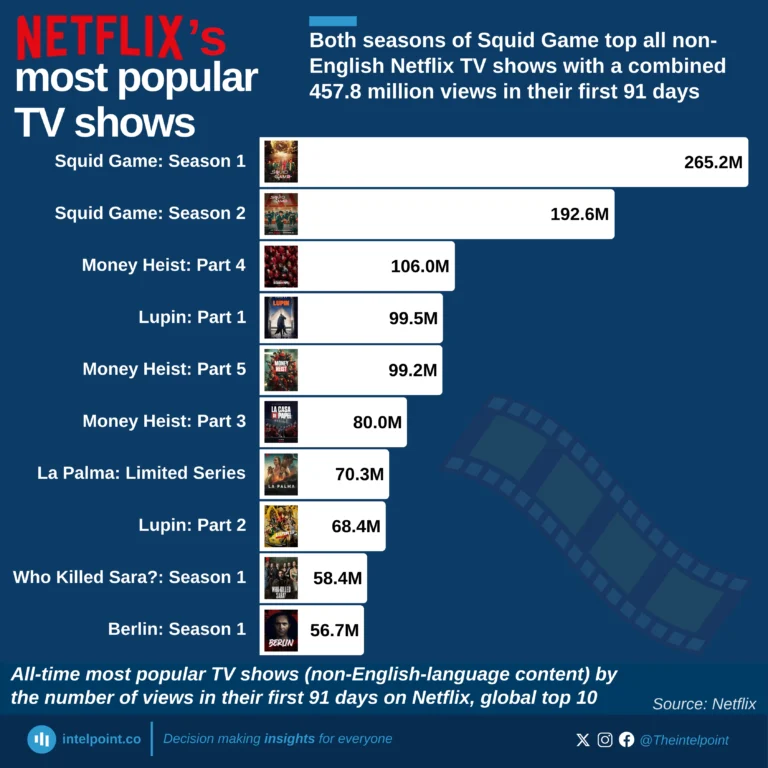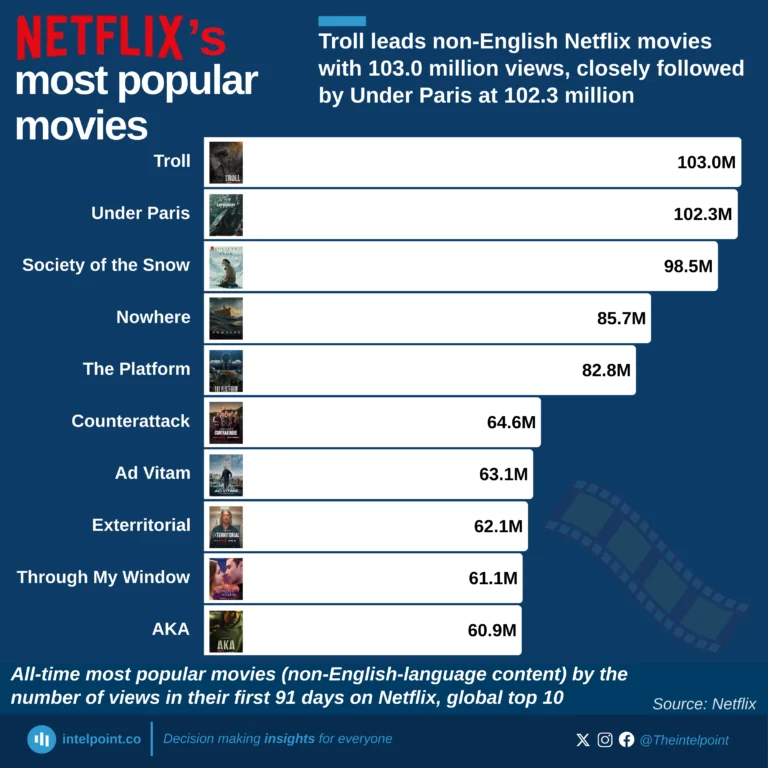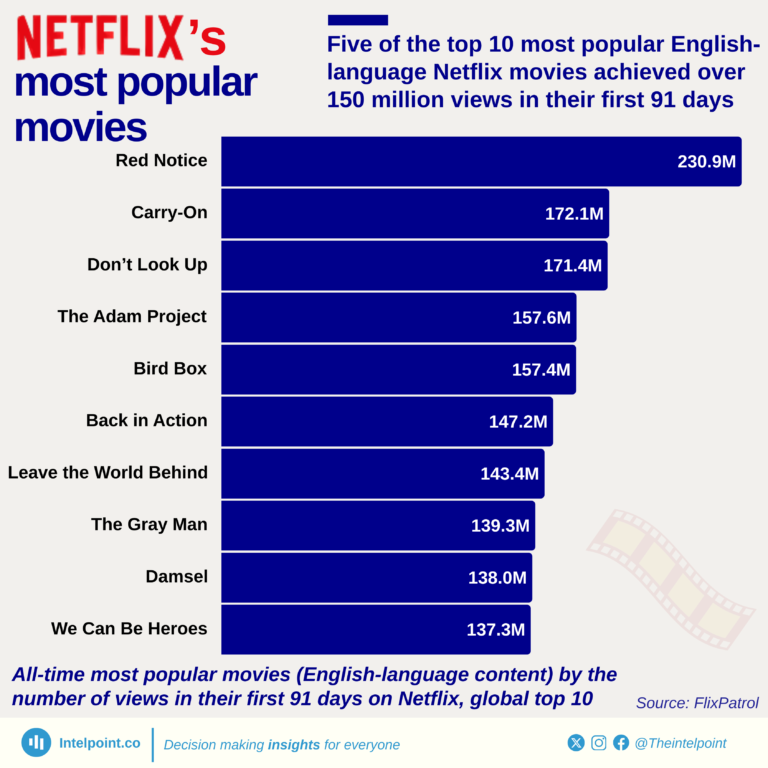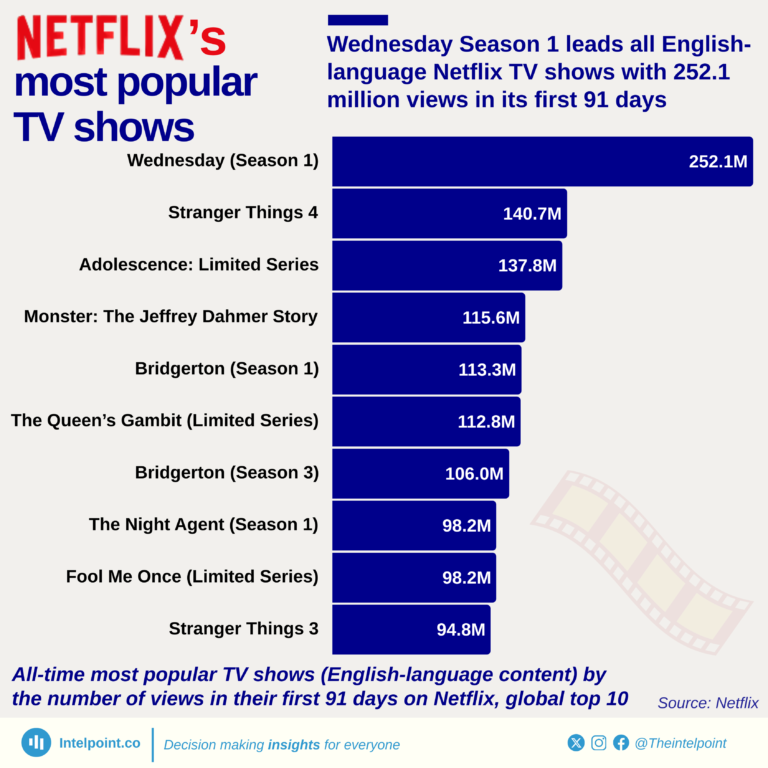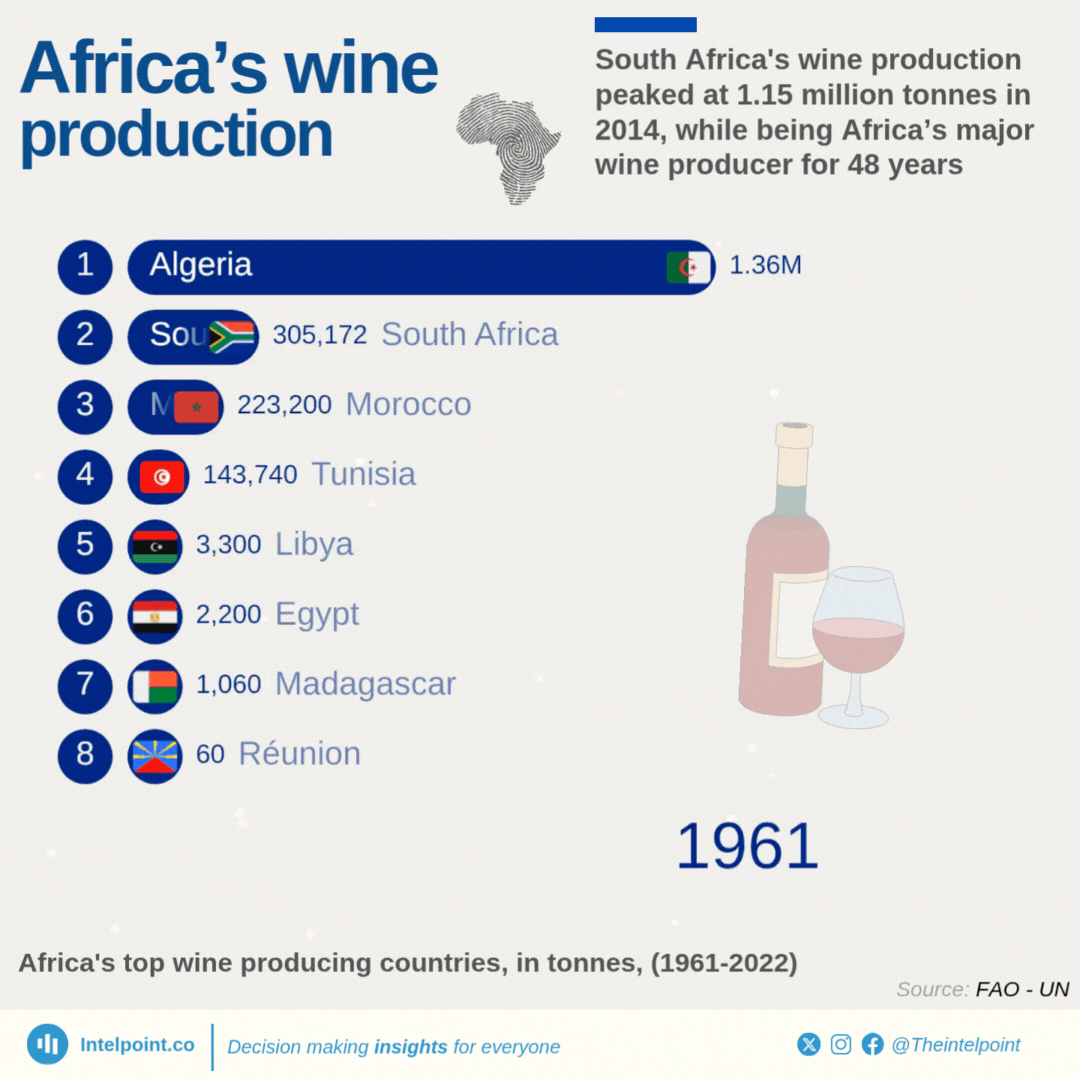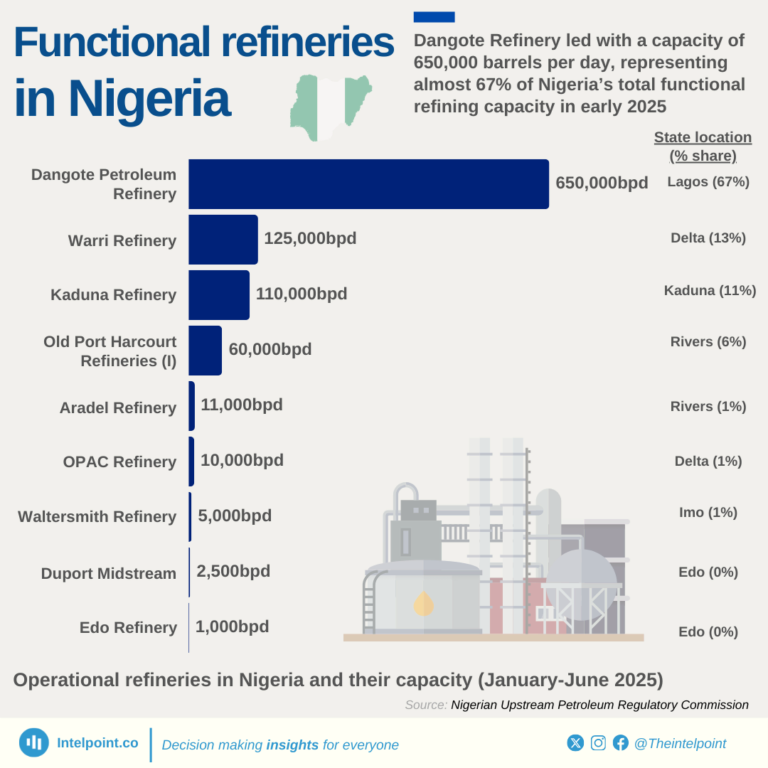
According to 2022 and 2023 data for 40 African countries, Egypt leads in the value of manufacturing output reaching $59.6 billion in 2023 despite a 21% drop from 2022.
Nigeria follows with $55.7 billion, while South Africa comes third with $48.8 billion.

Safaricom has maintained the largest share of telecom subscribers in the Kenya over the years. From 2008 to 2024, it has expanded its subscriber base from 10.2 million to 44.7 million, reflecting an average annual growth of 2.2 million subscribers. This consistent growth underscores Safaricom's strong market position and effective business strategy in Kenya's telecom sector.

When Olusegun Obasanjo took office in 1999, the exchange rate was ₦97 to $1; it was ₦128 under Yar'Adua in 2007. During Jonathan's tenure in 2010 it was ₦151 while it was ₦199 when Buhari was in office.
Despite efforts to let market forces decide the rate, the naira continues to weaken. Will the current administration turn things around soon?

Nigeria's manufacturing sector contributed 9.2% (₦3.37 trillion) to the total GDP in H1 2024, mainly driven by food, clothing, and cement, which make up a combined 79.5% of the sector's GDP.
Smaller sectors like Non-Metallic Products, Wood & Wood Products, and Motor Vehicles & Assembly could expand with targeted investments. The minimal impact of Oil Refining and Electrical & Electronics underscores the need for diversification.

President Tinubu's government recently added a new aircraft to the presidential fleet, sparking concerns over rising maintenance costs.
From 2017 to 2024, the cost of maintaining Nigeria's presidential air fleet has increased by 366%, jumping from ₦4.4 billion to ₦20.5 billion.
The Presidency argues that the new jet will save millions in maintenance and fuel costs.

Nigeria, Egypt, and Morocco have consistently led Africa's diaspora remittance, contributing 67% of the continent's total inflows since 2000.
In 2023, African nations received $94.78 billion, with Egypt, Nigeria, and Morocco leading.
Here are the top ten countries since 2000.
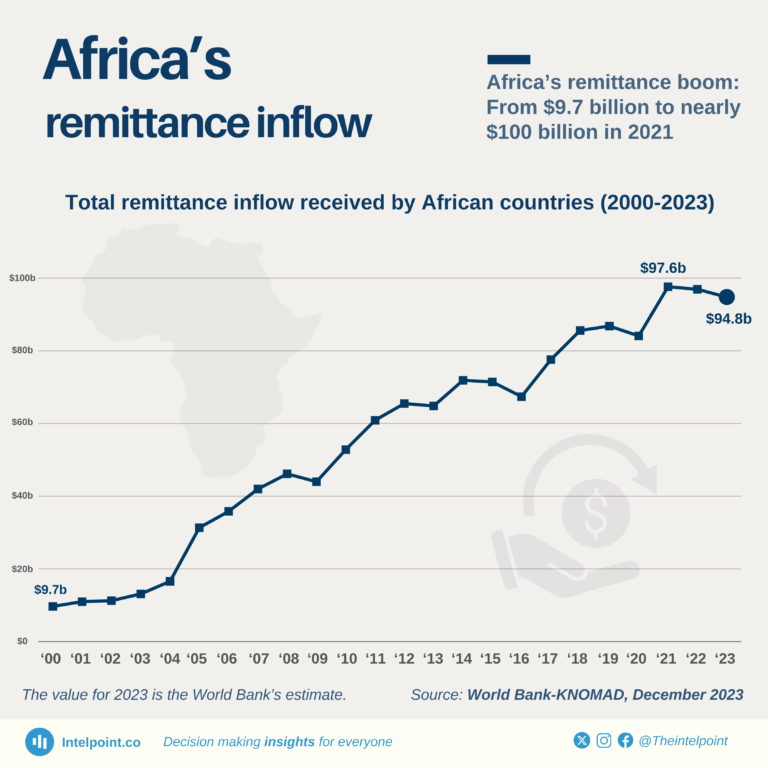
Africa's remittance inflow nearly reached $100 billion in 2021, driven by contributions from Nigeria, Egypt, and Morocco, the top recipients on the continent.
Growing from $9.7 billion in 2000 to $97.6 billion in 2021, highlights the crucial role of the African diaspora.
